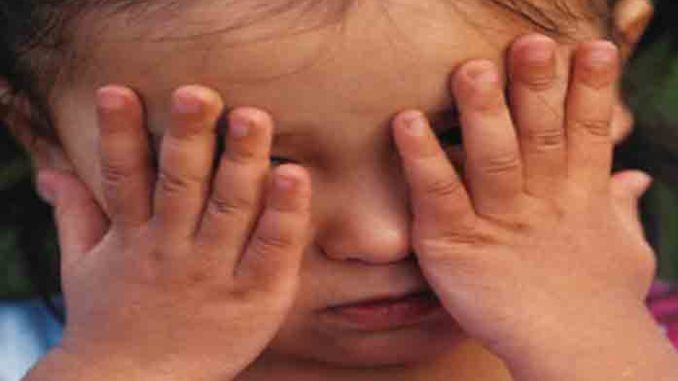
The Auditor General released a report last week in response to 2014 legislation that asked the Auditor General to report on the number of child abuse or neglect reports and the rate of substantiated child abuse or neglect cases in Arizona compared to other states, as well as the number of states with an office similar to Arizona’s Office of Child Welfare Investigations (CWI).
The Auditor General’s Office found “that the number of child abuse or neglect reports in Arizona has been similar to or exceeded the national average and although Arizona’s substantiation rate has been increasing, it was below the national average.”
The Auditor General found, based on information provided by investigative agencies from 25 states, that Texas is the only state with a unit similar to Arizona’s OCWI that investigates criminal allegations. The other states’ investigative agencies indicated that child abuse investigations involve two parties—child safety caseworkers and law enforcement—but not a third investigative unit, according to the report.
Report findings:
Child abuse or neglect reports and investigations
The Arizona Department of Child Safety (Department) receives and investigates allegations of child abuse or neglect. It receives these allegations through its Child Abuse Hotline, where calls are screened to determine if the allegation(s) constitutes a report for investigation. Reports involving criminal conduct are jointly investigated by a department caseworker, law enforcement, and an OCWI investigator in Maricopa and Pima Counties. OCWI investigators have different functions than department caseworkers, including different response times and documentation responsibilities. For fiscal year 2015, the Legislature expanded OCWI from 28 to 127 full-time staff, with 65 positions filled as of February 2015.
Arizona’s number of child abuse or neglect reports has increased and has been similar to or exceeded the national average
The Department has received an increasing number of child abuse or neglect reports annually, ranging between 33,000 and 44,000 reports in federal fiscal years 2008 and 2013. Although the number of Arizona reports compared similarly to the national average in federal fiscal years 2008 through 2010, the number of reports exceeded the national average in federal fiscal years 2011 through 2013. According to the Department, 2009 legislative changes that expanded the definitions of abuse and neglect and changes to the Department’s Child
Abuse Hotline screening tool may have contributed to the increased number of reports.
Arizona’s substantiation rate was below the national average, but has been increasing
Arizona’s annual rate of substantiation grew from 3.2 to 9.2 cases of child abuse or neglect per 1,000 children between federal fiscal years 2008 to 2013. This was a lower rate than the national average, which ranged from 10.9 to 11.6 substantiated cases per 1,000 children for the same time period (see figure on next page). Legislative changes expanding the definitions of abuse and neglect and requiring substantiation
when a child became a legal dependent of the Department likely contributed to the increase in Arizona’s substantiation rate.
Texas investigative unit similar to OCWI
Based on the information provided by child welfare investigative agencies in 25 states, we found that Texas was the only state with an investigative unit similar to Arizona’s OCWI. The Texas Department of Family and Protective Services (Texas Department) employs special investigators (SI) with a law enforcement background
to assist Texas department caseworkers, focus on forensic aspects of an investigation, and coordinate with law enforcement. These responsibilities are similar to those of an OCWI investigator. However, Texas law does
not require an SI’s involvement in an investigation, and an SI only becomes involved in an investigation at the request of a Texas caseworker. Conversely, Arizona law requires an OCWI investigator’s involvement in an
investigation involving criminal conduct. In addition, a Texas caseworker, not an SI, makes the final decision on whether to remove a child from the home, whereas an OCWI investigator makes that decision in Arizona.
Texas reported no redundancy, but took steps to improve collaboration
The Texas Department indicated that having two staff involved in an investigation—the caseworker and the SI—is not redundant, but helps to ensure appropriate decision making. To address initial collaboration issues, the Texas Department housed its SIs and caseworkers at the same location to help reinforce the goal of child protection, SI staff reported that they conducted brief outreach presentations with caseworkers explaining their role, and SIs and caseworkers are jointly trained.
Arizona redundancy issues largely addressed, but Department should continue to improve collaboration
Although there were some initial redundancy concerns in the work performed by OCWI investigators and department caseworkers, these have largely been resolved. However, the Department should continue to take various actions to improve collaboration. For example, the Department has three co-location units that may house caseworkers, OCWI investigators, law enforcement, and/or other professionals and should continue this effort as OCWI expands. The Department should also work with the Maricopa and Pima County Attorneys to update county investigative protocols to reflect OCWI’s role. These protocols should foster better coordination between local law enforcement and OCWI staff. Finally, the Department should conduct additional training regarding the roles of the department caseworker and the OCWI investigator.
The Auditor General recommended that the Department should:
• Continue its efforts to co-locate OCWI staff, caseworkers, and other staff;
• Work with the Maricopa and Pima County Attorneys to update investigation protocols; and
• Enhance its training related to criminal conduct investigations.
